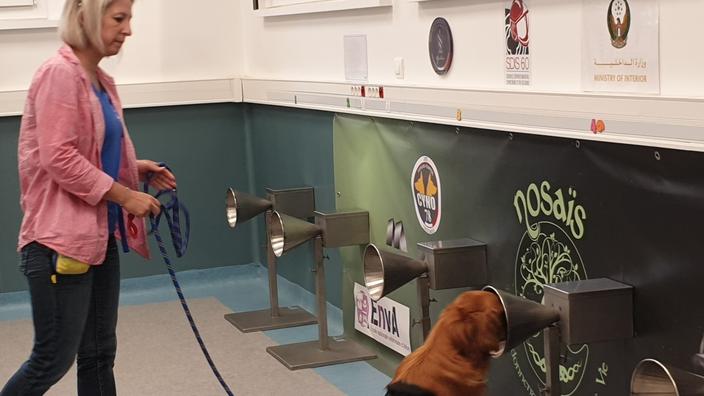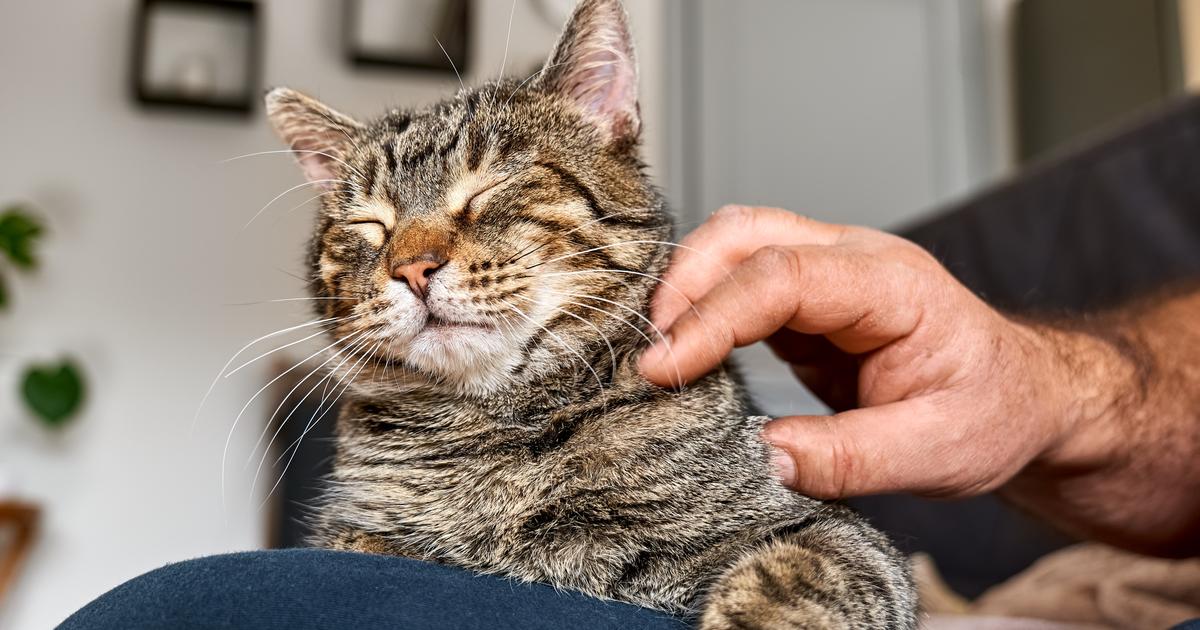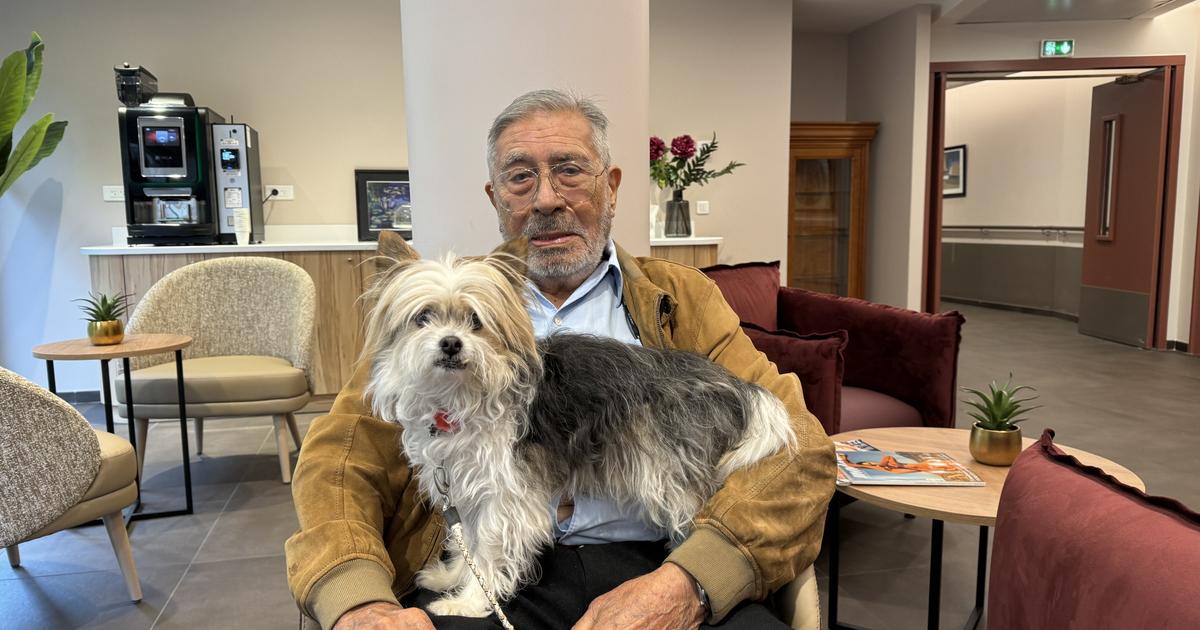Residents of the La Roselière retirement home in Kunheim, Haut-Rhin, will no longer have to undergo the swab now.
They will however remain sheltered from clusters.
Their solution?
Her name is Pokaa, a two-year-old golden retriever, formidably effective at detecting the Covid-19 using her nose.
On Wednesday July 28, this virus sniffer dog was the first to be deployed in nursing homes, in a partner establishment of the Handi'chiens association.
To discover
Covid-19: what we know about the Delta variant
To read also: In nursing homes, what rules for the last reluctant to vaccination?
From the start of the pandemic, the association saw the high potential of its 250 dogs already present in medico-social centers, with a nose up to 10,000 times more developed than ours, to detect the virus.
She came into contact with Professor Dominique Grandjean, director of the Animal Husbandry and Sport Medicine Unit at the Maisons-Alfort National Veterinary School, and instigator of the Nosaïs-Covid-19 project to train sniffer dogs. of the coronavirus.
This is where Pokaa spent four weeks with her educator.
"
We use decoys supplied by the Institut Pasteur, reproducing the virus's Spike protein
," explains Professor Grandjean to
Le Figaro
.
When canines are already trained to detect drugs or other substances, a few days are enough to train them. For the others, it takes a few weeks, but it remains relatively fast
”.
With its new skills, Pokaa can now analyze samples taken from the 115 residents of La Roselière and its staff. "
The operation is very simple
", explains to
Figaro
Benoît Seewald, who has the dual role of manager of the Alsatian training center Handi'chiens and executive of the nursing home. “
Using a compress, we remove a little sweat under the armpits, which we then put in a metal container. We then send a specific command to the dog, chosen as 'SNIF' for the covid, and the latter will sniff the boxes. When he sits in front of one of them, it means that the virus is present
".
If the vaccination reaches a rate of 95% in the Alsatian nursing home, the dog has the responsibility to anticipate and avoid any cluster.
Faster and cheaper than a PCR test
On the advantages of a canine test, the Hendi'chiens association is formal. “
PCR and antigen tests with a nasal swab are terribly invasive. Our patients are fragile and vulnerable, the swab can be violent for them, sometimes traumatic. With this simple sampling method, people do not even feel the weight of the test,
”explains Benoît Seewald, a former psychologist, who also underlines the speed and efficiency of this operation when a single dog is sufficient to ensure the detection of the whole establishment. However, the association specifies a crucial point: their dogs detect the virus only on sampling, and not directly on humans. "
It is an ethical question for us. It is a question of respecting the confidentiality of the state of health of each one. Being spotted in the street, in plain sight, would be very intrusive,
”explains the nursing home executive, who certifies the complete confidentiality of the test, carried out in a separate room, as well as the results provided to those concerned.
While the professor's idea raised a lot of questions at the start, a study conducted in recent months with the AP-HP of Île-de-France now confirms the reliability of canines: 97% sensitivity (ability to detect positive cases) and 91% specificity (concordance with the negatives).
"
On the symptomatic, it is even 100% reliability,
" says Professor Grandjean, who even perceives in his dogs an ability to detect the virus even before the PCR tests become positive.
An equally effective capacity against variants, and which, if confirmed, could be revolutionary in the understanding of the virus.
Multiply the experience
In addition to Pokaa, two other canines from the Handi'chiens association have been sensitized to the smell of the coronavirus, and should be deployed very soon, one near Saint-Brieuc, the other in Alençon.
“
We intend to make Pokaa available to other establishments and nursing homes in Alsace, free of charge.
The goal is for our educators to become trainers themselves, and for the experience to be multiplied,
”says Robert Kohler, president of the Handi'chiens association.
Read also: Discover 5 dog breeds ideal for seniors
A solution which, according to its promoters, would return to the economy for the State. Canine detection, according to Handi'chiens' estimates, would cost 1 or 2 euros per sample, taking into account the cost of training, while the total cost of a PCR test for social security is estimated at 74 euros l 'unity.
Despite these advantages, Robert Kohler regrets the lack of government investment in canine screening research. "
Our dogs are trained on private donations from the association, while this is a question of public health
", points out the president who, to better convince, invited the Minister of Health Olivier Véran to discover the work of Pokaa in Alsace. "
The State has committed many billions for laboratories, we would like it to take an interest in these experiments as well
." A finding shared by Professor Grandjean, who deplores for his part that the only public body that supported the project was the WHO. "
We have an international reach with 36 countries, including Germany which recently invested 1.5 million euros to install detector dogs at the entrance to concerts for the month of August.
But from the French authorities, nothing,
”he regrets.
The experimentation is not limited to the associative sector.
Dominique Grandjean's center, also a veterinarian colonel within the Paris fire brigade, also welcomes civil protection dogs in the Tarn, firefighters in the Yvelines and Gironde, the gendarmerie in the Dordogne, or even the Land Force.
If the Regional Directorate of Health has indicated that priority was given to nursing homes, the second on the list will be airports.
An exercise is planned for this purpose in September at Roissy, in partnership with ADP and the Île-de-France region.









